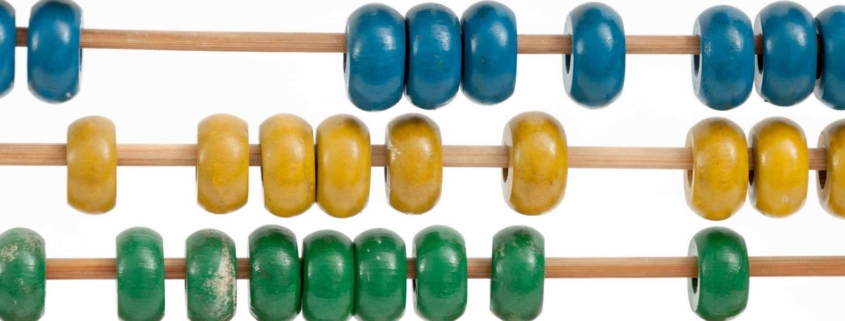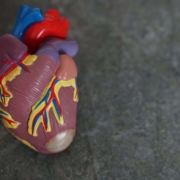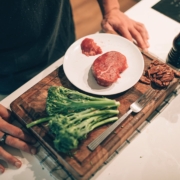“Nutrition is a science; diet is an art
Juan Carlos Simo,
The most successful Strength Coach in the Caribbean.
Calories are something we all know about, and we are told the importance of them. They are the chemical fuel for your body to move and carry out its functions; we all know if you exercise a lot, your calorie requirement goes up and vice versa. A calorie is simply a measurement of energy, and it is not something you can see with your eyes.
It is important to read good information on calories so that you have a good understanding. We might think we need to count calories or do something to get in better shape and health, but this may be unsustainable and difficult to adhere to.
This article discusses a better way of measuring how much you are consuming, which is easier and quicker than counting calories, and we also explain a few other noteworthy topics.
Calories – at the centre of many debates:
Most of us have heard at some point this classic saying, “if you want to lose weight, just eat less and move more“, this is an overly simplistic view of calories, saying that it is simply expending more than you consume. There is more to it than this, of course.
This has led people to go down the route of tracking calories, which as you read on, you’ll find we explain why this is not our favoured approach, and we also mention other aspects to our health that we want to consider.
We don’t want to be so concerned simply about the number of calories we consume; we need to consider the actual constituents of our meals.
Some people take it as far as only counting their macronutrients; in other words, they only track calories, protein, fats and carbs whilst not considering how they achieve the numbers for these nutrients.
This is termed ‘If It Fits Your Macros’, and this removes the need to assess what food you are eating but instead to eat whatever to get you to your target calories, protein, etc.
This is not our favoured approach as it simply misses where the calories are coming from and require lots of tracking.
Counting Calories – Is there a better approach?
Some people love to count calories, which might be fine; however, this is not a pragmatic approach for most people.
Counting calories takes extra time; it means checking labels, weighing food, entering data and so on. This puts so much focus on the maths of calories and the tiny details involved, which frankly is an inefficient use of our time. It would be better invested in simply making a good quality meal with great ingredients, and any spare time can be used. How you wish!
To improve your health, body composition, strength and fitness, you need to supply your body with nutrients, both macronutrients (proteins, fats, carbs) and micronutrients (vitamins and minerals). So when you are preparing a meal, consider the nutrients first, put the attention and focus on what you are giving your body and how it benefits you, don’t worry so much about the exact number of calories a meal contains.
Does the quantity of food still matter? There is no denying that if you are overeating more than likely, you will gain weight and vice versa, but there is still not any real need to track every single calorie you eat. The following section will explain a simple approach that removes the burden of tracking and calculating every calorie but still provides measurement and ease of use.
So how do you measure if you don’t count calories?
Just because you don’t track calories doesn’t mean you are not aware or mindful of how much you are eating. We still have a guide or measurement system, but it doesn’t work in grams or ounces. Instead of measuring out 125g of chicken breast, we will make it “one chicken breast”. If it is 130g, then great, you have had a little extra protein!
Another example may be for your carbohydrates, instead of 100g of cooked rice, the measure by using ½ cup or 1 cup and so on (it is so much more straightforward and time-efficient to scoop out 1 cup of rice than to whip out the scales and measure out each grain before eating).
Using this approach, we can be consistent; we still have a measurement (e.g. 1 cup of cooked rice), and this becomes our benchmark where we can assess the results and decide how we might go forward.
But how does this work for different goals?
Well, because we still have a measurement method, if you want to get leaner, it might simply be 2-3 eggs at breakfast and 1 chicken breast with salad at lunch.
But those same meals just increase in quantity for someone trying to build muscle and increase strength, and it might be: 4-6 eggs at breakfast, 1 chicken breast with salad at lunch and 1 chicken breast with 1 cup of cooked rice post-workout meal.
How do you know if this is working and getting results?
This is where consistency is key. If the weight on the scales and the skinfold measurements decrease, you are getting leaner, and you can continue with the current approach. If nothing is changing and you are not progressing, we need to re-assess based on what you are currently doing, so you might go from having 2 cups of rice per day to 1, then we re-assess again after a few weeks.
Likewise, for those trying to gain muscle and strength, if your weight is not increasing and your lifts in the gym are not going up, then adjustments have to be made fact! Further your reading in the following articles below and see what changes you need to make alternatively to cut out the guessing book for a consultation.
- Foundation Series: Training
- Nutrition – The right time and the right place, how to make carbohydrates work best for you.
- 5 Ways to Boost Your Health and Athletic Performance
The problem with too few calories:
When you diet for too long or do not eat enough calories, your body adapts to this by slowing everything down. Think of it as protection from starvation, your body is not getting enough, so it compensates by not moving and doing as much. There are plenty of studies investigating this phenomenon termed ‘metabolic adaptation’, and there is evidence that in such a low energy state that subjects in these studies will just move less, walk less, and stay sedentary more. All to compensate for such a low-calorie intake.
So while you do technically have to be expending more calories than you consume to lose body fat, it is also the case that doing this chronically or too rapidly is counterintuitive.
Consultations
We’re always here to help. If you have any questions or would like advice about supplements, nutrition, or training, please book in for a consultation.
Disclaimer
Always speak with your physician or other healthcare professionals before making any nutritional & lifestyle changes or before taking any nutritional supplement. For more information, please view our terms & conditions.
Further Reading:
- https://www.healthline.com/nutrition/calorie-restriction-risks#section1
- Caloric Restriction in Humans: Impact on Physiological, Psychological, and Behavioral Outcomes
- Reducing Calorie Intake May Not Help You Lose Body Weight
- Impact of calorie restriction on energy metabolism in humans
- Suppressed sympathetic outflow to skeletal muscle, muscle thermogenesis, and activity energy expenditure with calorie restriction











